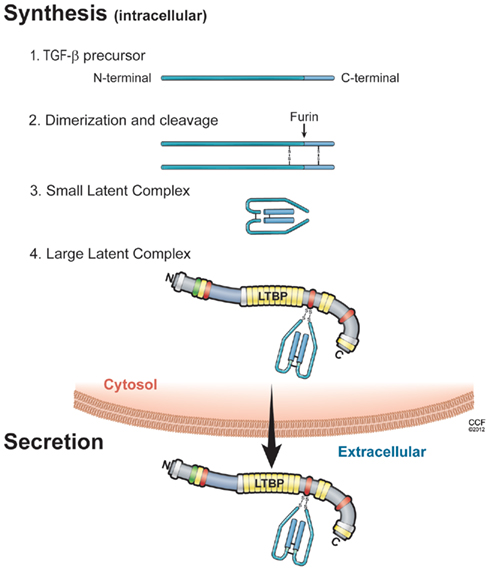Protein Aminoacids Percentage (Width 700 px)


SYNTHESIS AND TURNOVER
mRNA synthesis
protein synthesis
 post-translational modifications
post-translational modifications
degradation
CELLULAR FUNCTIONS
cellular localization,

biological function

- Enzymes
- Cell signaling and Ligand transport
- Structural proteins
REGULATION
Bull Exp Biol Med. 2009 Sep;148(3):406-9.
Effects of cholesterol and nuclear hormone receptor agonists on the production of transforming growth factor-beta in macrophages. 2009
Schwartz YSh, Khoshchenko OM, Dushkin MI, Feofanova NA.
We studied the effects of cholesterol, its oxidized derivatives mevalonate, and nuclear receptor agonists LXR, RXR, and FXR on the production of transforming growth factor-beta1 (TGF- beta1) by macrophages. After recruiting of macrophage monocytes into the focus of inflammation, the production of TGF-beta1 increased by 3.5 times in comparison with control macrophages. Cholesterol diet stimulated the production of TGF-beta1 by 2.5 times. Cholesterol directly stimulated macrophage production of TGF-beta1 in vitro, while addition of mevalonate to the incubation medium effectively reduced this induced production. Agonists of nuclear receptor sharply reduced the production of TGF-beta1 in recruited macrophages. Under conditions of inflammation, hypercholesterolemia can be a factor of fibrogenesis due to TGF-beta1 induction in macrophages, which depends on the products of mevalonate biochemical chain.
TGF-B receptors

USP26 regulates TGF‐β signaling by deubiquitinating and stabilizing SMAD7, 2017